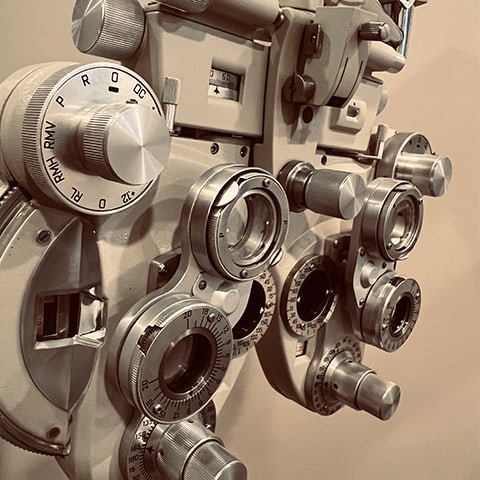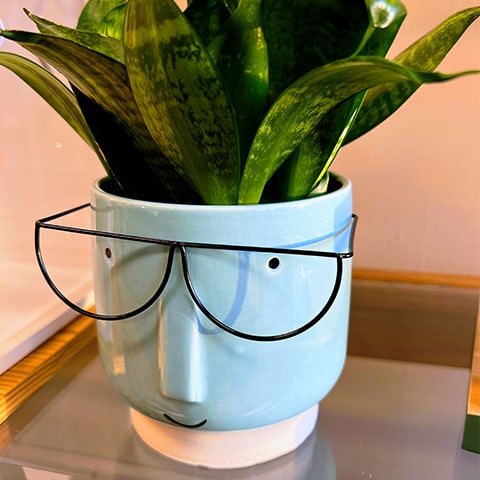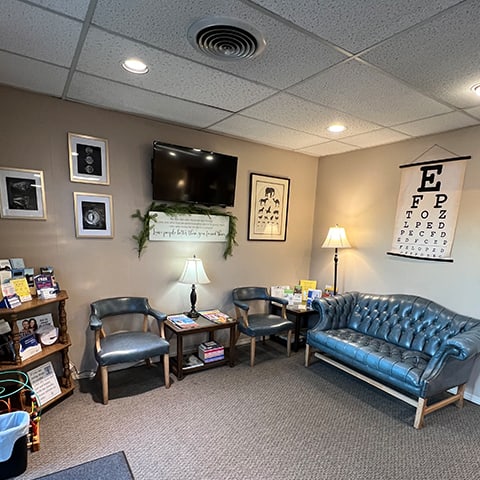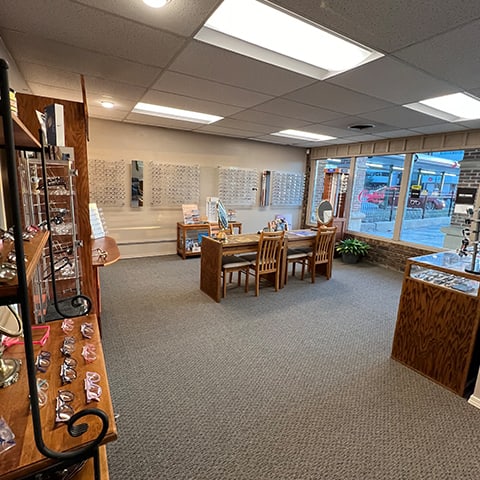Irritating, Uncomfortable Eyes
We use our eyes all day long, but we rarely think of them—unless they’re uncomfortable, and then they’re all we think about.
Dry eye is a chronic, common, and uncomfortable condition, impacting more than 16 million Americans. Not only is it irritating, but it can really put a damper on your daily activities. Dry eyes can decrease your quality of life and hinder productivity.
But relief is available! Book an appointment today for a comprehensive eye exam to diagnose your dry eyes. While the condition is rarely serious on its own, it can lead to long-term infections and eye damage down the road. Anytime your eyes are uncomfortable, it’s best to visit us and rule out any more problematic conditions.
Request Appointment
Symptoms of Dry Eyes
Dry eye symptoms generally occur in both eyes at the same time and can include:
- Stinging or burning
- Gritty or scratchy feeling
- Foreign body sensation
- Red or watery eyes
- Blurry vision
- Sensitivity to light
- Eye fatigue
- Stringy mucus in or around your eyes
- Discomfort when wearing contacts
If you are experiencing any of these symptoms, book your appointment to find relief today.
Request AppointmentWhat Is Dry Eye?
Dry eye is exactly what it sounds like—it occurs when your eyes aren’t producing enough lubrication to keep them moist and comfortable.
There are two main types of dry eye: aqueous deficiency dry eye and evaporative dry eye. The first—and least common—occurs when the eyes simply don’t produce enough tears. The second occurs when the tears lack the appropriate chemical composition to be effective.
Aqueous Deficiency
Reasons for decreased tear production are varied and may include:
- Contact lens wear
- Normal aging
- Medications such as antihistamines or antidepressants
- Medical conditions such as lupus, rheumatoid arthritis, or Sjögren’s Syndrome
- Recent laser vision correction surgery
Evaporative Dry Eye
High-quality tears depend on a balanced and effective tear film. The tear film comprises 3 layers:
- The mucus layer, which helps spread tears over the surface of the eye.
- The water layer, which helps hydrate the eye.
- The oil layer, which helps stop moisture from evaporating too quickly
Dry eyes can result from an imbalance in any of these 3 layers.
Both the top and bottom of your eyelids are lined with tiny, oil-producing glands called the meibomian glands. Blockages in the meibomian glands might reduce the amount of oil produced, causing dry eyes.
When evaluating dry eyes, it’s important to examine the meibomian glands carefully. If they are not functioning well, there may be other factors at work, such as lid hygiene or inflammation.
Finding Relief From Dry Eye
No matter the cause of your dry eye, relief is available. We offer customized treatment options tailored to your unique needs.
Get clear, comfortable vision today!
Request AppointmentCome Visit Us
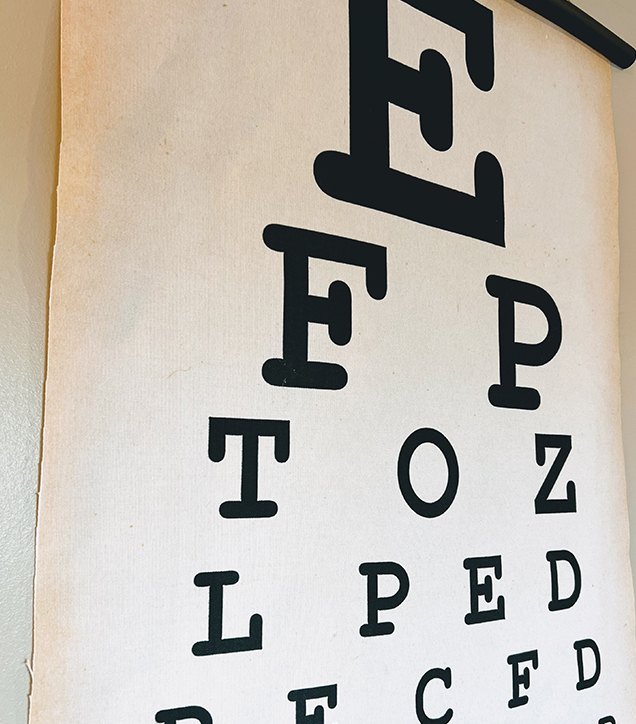
Our Address
- 5910 S Lewis
- Tulsa, OK 74105
Contact Information
- Phone: 918-745-9700
- Fax: 918-743-8102
- Email: staff@adudleyod.com
Hours of Operation
- Monday: 8:30 AM – 5:30 PM
- Tuesday: 8:30 AM – 6:00 PM
- Wednesday: 8:30 AM – 5:30 PM
- Thursday: 8:30 AM – 5:30 PM
- Friday: 8:30 AM – 2:00 PM
- Saturday: Closed
- Sunday: Closed
Insurance & Payment Information
Dr. Dudley’s Primary Eye Care believes in providing the best value for you and your family. We have products and pricing that aims to accommodate all budgets and our office participates in most insurance programs. For patients who have little or no vision insurance coverage, flexible payment programs may be arranged. To learn more about our payment options, please call our office directly.
Vision Insurance
We accept several forms of vision insurance including:
- EyeMed
- Superior Vision
- Primary Vision Care Services (PVCS)
- Vision Care Direct
- Humana Vision
- Vision Service Plan (VSP)
- Care Credit
- And More
We are also provider for Medicare, several Blue Cross Blue Shield plans, BlueLincs HMO and United Health Care
*Please call our office with any insurance inquiries!
Flexible Spending & Savings Plans
- Flexible Spending Plans
- Health Savings Accounts (HSA)
- Medical Savings Accounts (MSA)
- Cafeteria Plans
All of the above plans can be used for all your eye care and eyewear needs, including eyeglasses, contact lenses, routine office visits and medical office visits.
Care Credit
The Care Credit card is available to help people pay for health care expenses, often with an introductory period that is interest-free. We accept Care Credit for all of our services. To learn more or apply, visit Care Credit here.
Our Services
Our Brands








Our Google Reviews
Our Blogs
Eye Exams: What to Expect
Eye Health and DiseasesYearly comprehensive eye exams are crucial to detecting changes in your vision and risk of eye-related diseases. We recommend adults have a comprehensive eye exam every year, and children should have an eye exam as early as six months before they start school, and then every 1-2 years. We often get questions about what to […]
Bifocal vs Progressive Lenses
Eye Health and DiseasesFor individuals that need vision correction both near and far, progressive or bifocal lenses are a must-have! As your eyes age and your vision changes, age-related farsightedness or presbyopia may start to affect your vision. What are Bifocal or Progressive Lenses? Progressive and bifocal lenses transition from near to far distance prescription within one lens! […]
6 Common Eye Symptoms and What to Do
Eye Health and DiseasesSuffering from eye discomfort or blurry vision can be scary, especially if it comes on suddenly or is a result of a dramatic event. Below are some of the common eye-related disorders. However, remember that common doesn’t mean it should be ignored. If you are experiencing any of these systems or if you have questions […]
Eye Exams: What to Expect
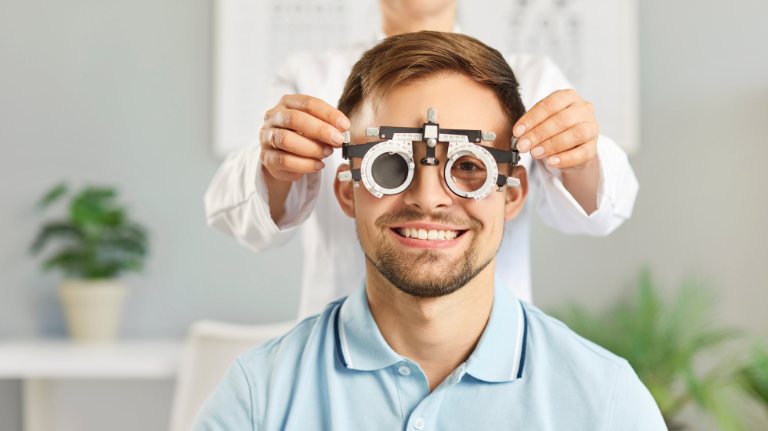
Yearly comprehensive eye exams are crucial to detecting changes in your vision and risk of eye-related diseases. We recommend adults have a comprehensive eye exam every year, and children should have an eye exam as early as six months before they start school, and then every 1-2 years. We often get questions about what to […]
Bifocal vs Progressive Lenses

For individuals that need vision correction both near and far, progressive or bifocal lenses are a must-have! As your eyes age and your vision changes, age-related farsightedness or presbyopia may start to affect your vision. What are Bifocal or Progressive Lenses? Progressive and bifocal lenses transition from near to far distance prescription within one lens! […]
6 Common Eye Symptoms and What to Do
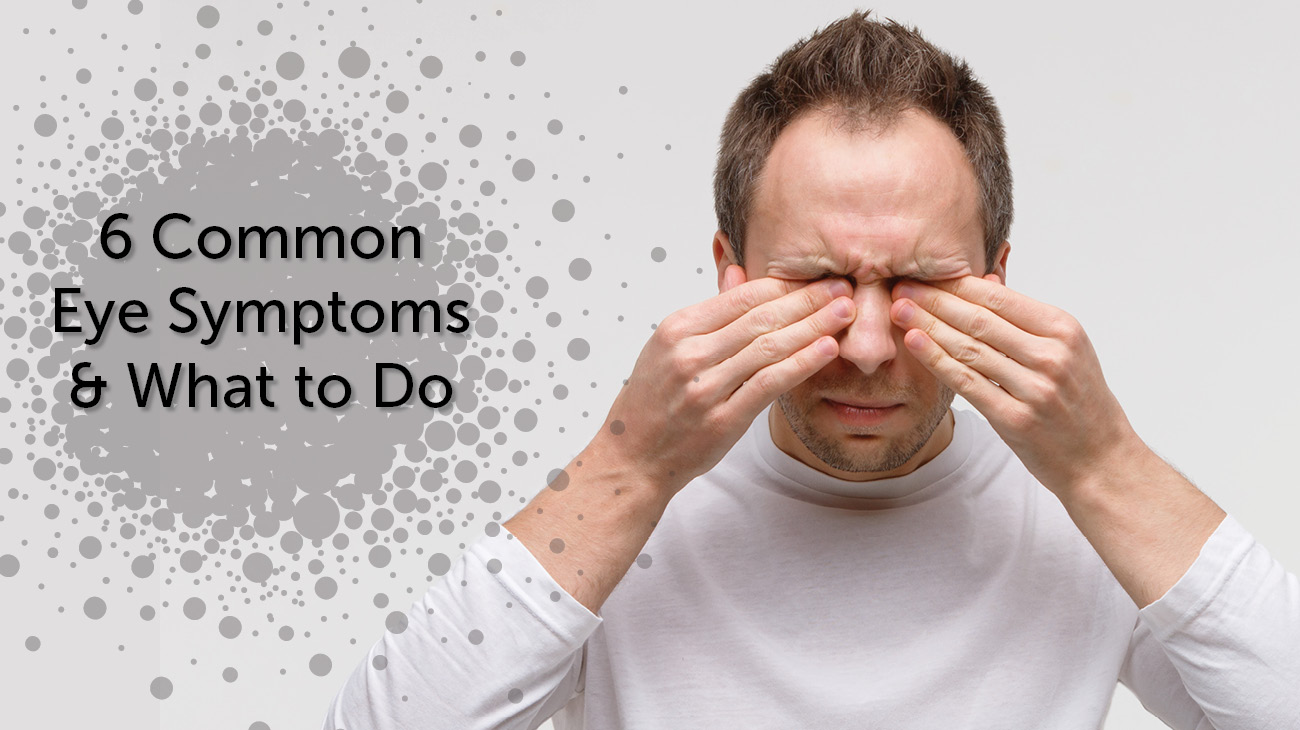
Suffering from eye discomfort or blurry vision can be scary, especially if it comes on suddenly or is a result of a dramatic event. Below are some of the common eye-related disorders. However, remember that common doesn’t mean it should be ignored. If you are experiencing any of these systems or if you have questions […]






